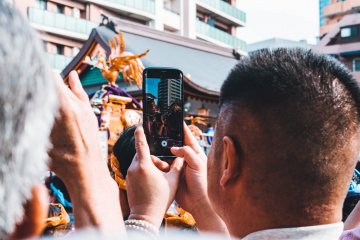
Daikoku Matsuri 2026
Japan TravelThe annual Daikoku Matsuri is held in mid-January and honours Daikoku, the deity of fortune. It is held close to Japan's Coming of Age Day the same month.

Kanda Shrine (Kanda-myōjin), is a Shinto shrine located in Chiyoda, Tokyo, Japan. The shrine dates back 1,270 years, but the current structure was rebuilt several times due to fire and earthquakes. It is situated in one of the most expensive estate areas of Tokyo. [Wikipedia]
Given its close location to the mecca of electronics at Akihabara, Kanda Shrine is often associated with blessing of electronics and has been used to host events, such as most recently for Sony's PS5 console.
Four minute walk from Suehirocho Station Ginza Line Six minute walk from Ochanomizu Station (JR Chuo Line, JR Chuo-Sobu Line).

The annual Daikoku Matsuri is held in mid-January and honours Daikoku, the deity of fortune. It is held close to Japan's Coming of Age Day the same month.
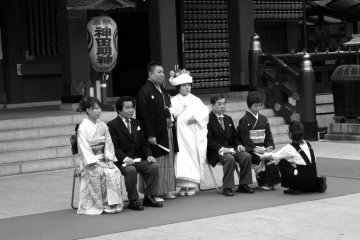
The land it occupies is some of the most expensive in Japan, but Kanda Myojin still somehow feels like a friendly neighborhood shrine, though bigger and brighter.
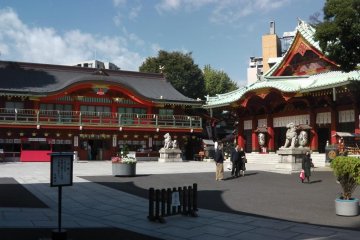
The picturesque Kanda Myojin is immensely important in the Shinto religion, has a notable history, and hosts one of Tokyo's biggest festivals.
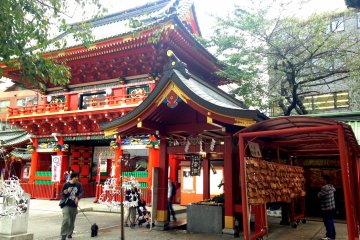
Close to Akihabara in central Tokyo, explore Kanda Myojin Shrine, the "world's geekiest temple" and a tech-lovers' sanctuary for charms.
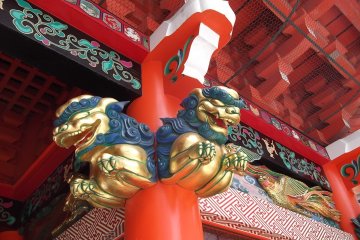
Near Ochanomizu station in central Tokyo, Kanda Myojin is a lively, colourful Shinto shrine
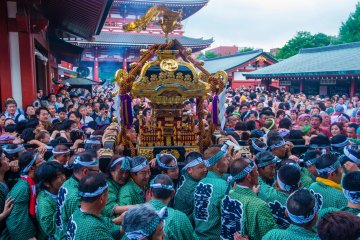
The Kanda Festival, one of Tokyo's major Shinto festivals, is an enormous event held on odd-numbered years. Leading to Kanda Myojin, it has festivities from Sat. to Sun.
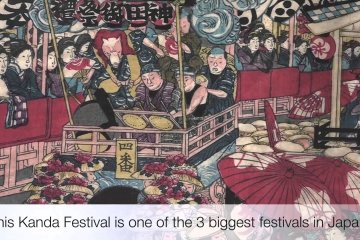
The Kanda Festival is one of Tokyo’s 3 greatest festivals. It's also counted as one of Japan’s big 3 festivals (Gion Festival/Kyoto and Tenjin Festival/Osaka).

Kanda Myojin is an historic Shinto shrine in the Kanda area. The Shrine has been restored many times. It was first built about 1270 years ago near the modern Otemachi district. It was moved to Kanda-dai at the beginning of the Edo era, and then changed to its current location in 1616. It was destroyed in the Great Kanto earthquake of 1923, and then rebuilt in 1934. Tokyoites come here to pray for success in business, good health and happy marriage. Kanda Myojin enshrines three Kami: Daikokunen, the God of good harvest and matrimony, Ebisu, the God of fishermen and businessmen, and Taira no Masakado, who was a Samurai who rebelled against the Heian government and was later elevated to the status of kami out of reverence. Kanda Myojin is the home shrine of the Kanda Matsuri, held every two years in May. In Kanda Myojin you can buy special o-mamori (amulets) which have the power to protect your computer against virus attacks.
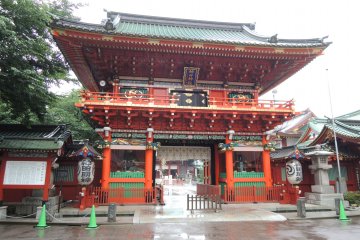
Kanda Shrine is located less than 7 minutes away from Ochanomizu Station. There are many visitor who wish for good fortune in studying and playing sports.

The annual Daikoku Matsuri is held in mid-January and honours Daikoku, the deity of fortune. It is held close to Japan's Coming of Age Day the same month.
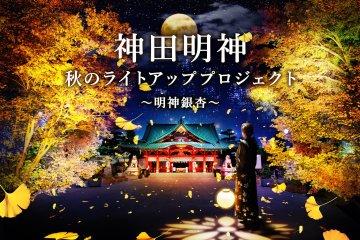
To celebrate Kanda Myojin's seasonal beauty, an autumn leaves light up is set to be held in collaboration with the digital art collective NAKED. The event will run from 17:30 to 20:00 each day during the scheduled period, and is free for visitors to enjoy.

NOHGA HOTEL AKIHABARA TOKYO is conveniently located in the midst of the electric town Akihabara, also known as the capital of manga and anime. In addition, this neighborhood has an abundance of tech shops, maid cafes and a variety of restaurants. With just a 6-minute walk away from Akihabara station, it provides easy access to explore other areas nearby such as Ueno and Asakusa. This hotel embodies the rich cultures of music, art and food. Nohga’s concept of music is derived from Akihabara’s local history, starting as a district of radio and wireless component merchants in the late 1920s. The artistic and luxurious space throughout the hotel is achieved by featuring art and amenities designed in collaboration with craftsmen from around Japan. As for the food menu, it’s seasonal fresh ingredients are sourced domestically. The glasses and dinnerware served are collaborations with stores in the surrounding area. All 120 non-smoking guest rooms feature an ensuite bathroom with a rain shower, in-room safety box, mini fridge, USB plugs, free Wi-Fi, a high-quality bluetooth speaker and flatscreen TV with original music and film. The lounge area and a compact 24-hour gym can be found near the reception on the second floor. Services include laundry (from 2,750JPY) and a 24-hour front desk with a check-in time of 3PM and check-out time of 11AM. For sightseeing you can rent a Tokyobike for the day (2,000 JPY/day) to explore the vicinity.
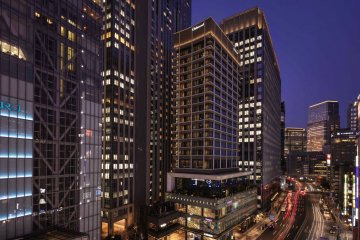
Oakwood Premier Tokyo comes from a brand of standout luxury hotel & service apartments right at the heart of the Tokyo metropolis. It is located in the business hub of Marunouchi with JR Tokyo Station in close proximity. This will allow guests and travelers to easily access the city's extensive transport network and visit various landmarks such as Imperial Palace, Tsukiji Fish Market, Ginza and Shopping District. Boasting 123 luxurious apartments on the upper floors of a multi-serviced complex, each room offers a magnificent view of the city, not to mention all furnished and a fully-equipped kitchen set which is rarely seen in your everyday service apartment. Without doubt, these spacious tranquil retreats are curated to give you the amenities and services of a luxury hotel and a feeling of home. They are good options for both business executives and leisure travelers from one night of a short-stay to a few weeks/months of mid-to-long-term stay.
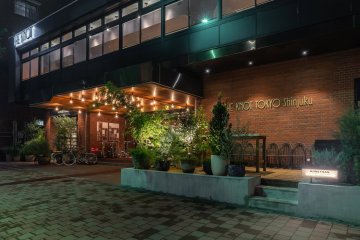
Located right next to Shinjuku Chuo Park, THE KNOT TOKYO Shinjuku is a modern hotel with an exceptional design and easy access to the nearby Shinjuku train station and the Meiji Shrine. The 14-story hotel building was renovated and reopened in August 2018 as THE KNOT TOKYO Shinjuku . The western-style rooms offer a park view on the top floor as well as a newly opened terrace suite. The spacious atrium design offers a relaxed atmosphere and connects the restaurant, bar, lounge and lobby with one another. One of the highlights of THE KNOT is the delicious dishes. There are six areas in which food and drinks are offered. From the grill area to high-quality black tea and fresh bread, everything is on offer.

PIZZERIA & BAR NOHGA is an all day dining restaurant interpreting a fusion of “Spanish Italian” cuisine and has a kitchen to table design. There is a casual bar area and restaurant where you can take a peek inside the open kitchen whilst enjoying your meal. Visit the cafe for a range of coffees and teas along with an offering of tapas snacks and seasonal desserts. The cafe also offers an assorted dessert and all-you-can-drink cafe set. Breakfast takes on the art of sharing, where a range of platters are combined with focaccia and your choice of eggs cooked your way. Coming for lunch? Choose from a selection of pizzas, pastas and salads. Each lunch menu is accompanied with homemade soup, iced tea and focaccia. Dinner time offers a range of exquisite tapas and pizzas that can also be shared. Breakfast: 07:00 - 10:00, Lunch 11:30 - 14:30, Cafe 14:30 - 18:00, Dinner: 18:00 - 23:00 with last order at 10pm.

Bunny Cafe Moff Rell in Tokyo's Chiyoda Ward offers a chance to interact with adorable rabbits. You can make reservations for the cafe by phone, or you can visit and pay at the store before entering. The cafe provides 30- and 60-minute courses, and you can play with or feed the bunnies. If you are unsure about how to treat the rabbits, don't worry! The staff members will kindly explain everything to you. Minimum age is 10 years old.
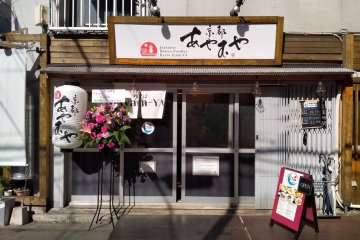
Ayam-YA is a certified halal ramen restaurant found in the Okachimachi area of Tokyo, between Asakusa and Ueno, and not far from Assalaam Mosque. A sister branch in Kyoto also exists.
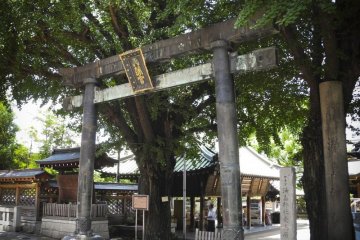
Yushima Tenmangu, also known as Yushima Tenjin, is a Shinto shrine dedicated to Tenjin, the god of learning. It is conveniently located in Bunkyo City, positioned near Ueno Park and the University of Tokyo, which makes it a popular spot for students to pray for good grades and inscribe ema (wooden plaques) with their academic goals. The shrine is also abundant with seasonal flowers and plays host to lively events throughout the year, including the Plum Blossom Festival, Tenjin Festival, and Chrysanthemum Festival. The shrine was initially founded in 458 as a place of worship for Ame-no-Tajikarao, the god of physical strength. Later, in 1355 the building expanded and became one of the many shrines dedicated to Tenjin, the deified spirit of famous scholar and politician Sugawara-no-Michizane. The grounds feature beautiful shrine buildings designed in the traditional Shinto architectural style, some which are decorated with colorful carvings of Japanese legends. The Main Hall (or Honden) exemplifies this artistry. Other notable structures are Yushima Tenjin Treasury, a small museum that holds a number of cultural artifacts and paintings, and Omotesando, the copper torii gate at the shrine’s entrance. The torii was designated as a Tangible Cultural Property by Tokyo.
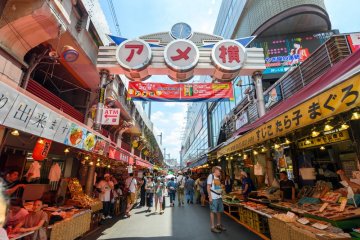
Ameya-Yokocho is an extremely busy street market that runs along the railway line between JR Ueno Station and Okachimachi Station. There are many small retail stores on this street selling seafood, fruits and vegetables, general supplies, as well as shops for discount clothing, accessories, cosmetics, watches and confectionery, as well as a large number of stalls selling street food snacks, as well as inexpensive restaurants, cafes and bars. Originally, the area that is now called Ameya-Yokocho was an inner-city residential area with many wooden houses crowded together. However, during the previous war, the entire area was burned to the ground in a bombing raid. Reconstruction began immediately after the war and a number of shops and street stalls sprang up in the area.
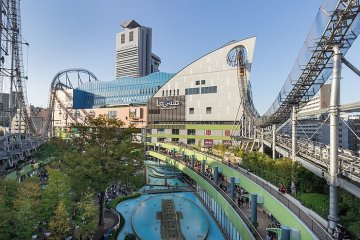
Tokyo Dome City is a multi-faceted entertainment and retail complex in the Bunkyo district. Not to be confused with the Tokyo Dome venue, Dome City consists of the entire area: amusement park, stadium, shopping complex, hotel and even a spa. Although considered ideal Stopover is touted, Tokyo Dome City can easily take more than a day to explore all of the attractions. The Tokyo Dome with 55,000 seats is the home stadium of the Yomiuri Giants. Concerts and festivals are held in the stadium when there are no games. Opened in 2003, LaQua is a popular relaxation oasis with hot springs, saunas and various massage and cosmetic offers. The amusement park features a roller coaster, a Ferris wheel and a tower that lets visitors fall from a height of 80 meters. The Koishikawa Korakuen, a beautiful landscape garden from the early Edo period, is located near Tokyo Dome City and invites you to linger.